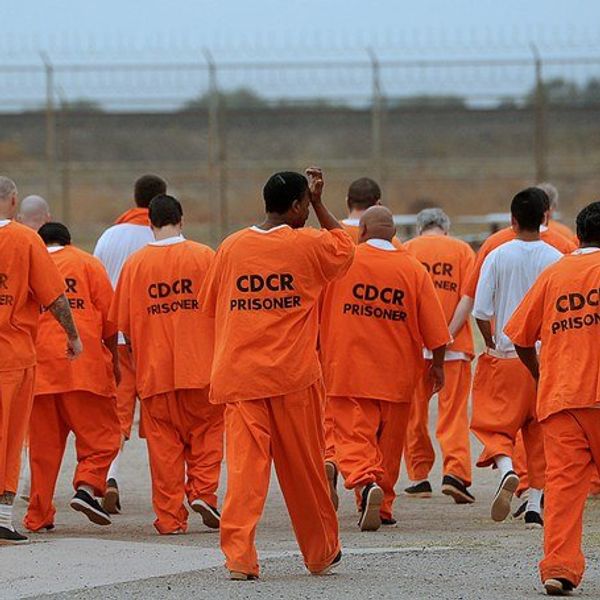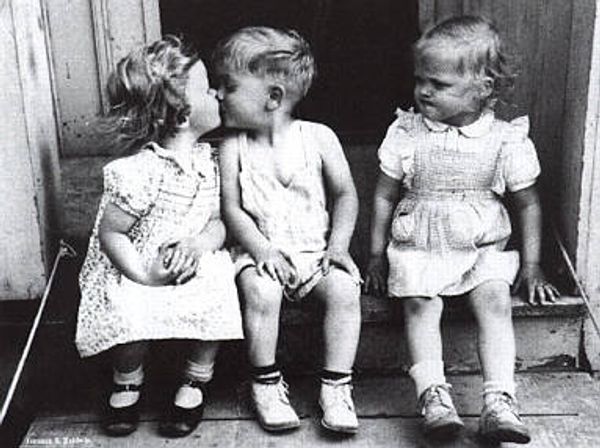In my high school debate class, I decided I wanted to become a lawyer, simply because I loved to argue. This decision, though a wildly inaccurate idea of what being a lawyer truly entailed, stuck with me throughout the years and led me to apply for internships with both the District Attorney’s Office and the Public Defender’s Offices in Colorado. At the time, I had no preference as to which office I worked with, I only knew that I wanted to work in the criminal law field.
I accepted an internship with the Arapahoe Public Defender’s Office, since it was near my house and the position as “Investigative Intern” sounded incredible. However, I did not have the slightest clue as to how much this position would change the way I view our justice system. Public defenders have the arduous and demanding task of fighting the prosecutor’s sentences, no matter the situation surrounding their client. Today, there is a largely undeserved stigma around public defenders, leading people to believe every public defense team is lazy, uneducated or unethical. After working side by side with the defenders in Arapahoe County, I’ve witnessed the compassion for all people, faith in our justice system, and motivation that drives these defenders to constantly fight for others, even when faced with incredibly bleak circumstances.
During my interview with the Public Defender’s Office, the head attorney asked the classic questions about my past work experience, where I went to school and why I had applied to work with the Public Defender. However, he also asked me why I had never worked for any fast food restaurants, if I knew anyone that had ever been to jail, if I believed in the death penalty and if I really cared about social justice. Thankfully, I had impressed both the State Public Defender as well as the three investigators sitting in the interview that day, and they offered me the position right away. Of course, this was not until after multiple warnings about the ethics of working in a public defender’s office, and the importance of equality and avoidance of bias in the social justice system.
I was ecstatic to start this internship. I was told my daily tasks could involve anything from visiting crime scenes to take photos, interviewing witnesses, serving subpoenas or creating presentations for the attorneys to use in trial. I never truly thought about the fact that I would be working to help criminals get out of jail and spending all my time fighting for the “bad guys.”
“Ha, you’re working for the wrong side,” was the semi-sarcastic (but pretty cynical) response I received when I introduced myself as the Arapahoe Public Defender’s Investigative Intern to the receptionist at the Aurora Police Department on my first day. Obviously, the police station isn’t normally a fan of the people trying to help their alleged criminals, but even criminals deserve someone to support them. In America, unfortunately, society assumes that if someone is charged with a crime, then they are most likely guilty. Public defenders fight the battles for their clients when no one else will, and some of these people are condemned in society for their actions.
During my first few weeks working in the Public Defender’s Office, the cases I was working on were very low-profile cases: lots of DUIs, petty theft charges and traffic violations. It was easy to brush off accusations that I was helping criminals get out of trouble, when the crimes were seemingly trivial.
Unfortunately, the job of a public defender is not always to stand up for the “little guy” and to help innocent people who got caught in bad situations. Not everyone in jail is innocent, yet everyone has the right to a public defender. Society again and again has accused public defenders of working with an “ethical blindness” and avoiding the truth at all costs. This is a severe misrepresentation, though. Public defenders protect the rights of citizens and make sure those wrongly accused don’t suffer the consequences of bias and corruption. They fight for a fair justice system, serve the public and help make their communities better for everyone.
Over 90 percent of criminal cases settle in plea bargains because if our justice system is to function correctly, those individuals who are guilty of a crime will be punished. Public defenders can help their clients settle an appropriate deal that allows them to serve time for their actions, repent their sins and still have the opportunity, or at least the hope, of living life freely again. Ideally, our justice system would ensure that everyone is treated fairly, the truth is discovered and all crimes are appropriately punished.
As I continued to work with the Arapahoe Public Defenders, I got more involved in the investigation for some very serious crimes. Many of our clients were clearly guilty in these cases, with fingerprints, surveillance videos or multiple witness testimonies to prove that these clients were in fact involved with the crimes. However, I realized that just because they had committed these crimes that did not mean they did not deserve a fair trial. I would often go down to the Arapahoe County Detention Center to show clients their discovery, or update them on the progress in their cases, and I cannot say that I ever had a bad experience visiting the jail. All of the people I was meeting with were very kind, they were all so grateful for the opportunity to talk to someone about anything. One man told me one day that hearing about his case made him too depressed, and he wanted to share with me what he’d recently read about genetics.
Many of the prisoners I talked to were incredibly remorseful, and were just happy to have someone on their side. These prisoners, though most of them were probably guilty, were still people and deserved a second chance. If I could make someone’s day simply by talking to them, maybe a public defender could change someone’s outlook on life by supporting them throughout the lowest point in their life.
Thankfully, our office was not assigned any incredible, high-profile crimes while I was working with the public defenders, but the Arapahoe District is sadly not inexperienced when it comes to massive cases. Last summer, I had first heard the names of the public defenders I now work for on the news thousands of times, as five of them were representing James Holmes, the infamous “Joker” movie theater shooter.
On July 20, 2012, James Holmes walked into a theater playing the midnight premiere of "The Dark Knight Rises," sporting a gas mask, body armor and dyed red hair and shot over 70 people, killing 12. Holmes also had rigged his entire apartment with over 30 handmade grenades, in hopes of harming anyone who entered his home. It was a horrific and senseless crime, and left hundreds of people devastated. Holmes was then placed in solitary confinement and charged with 24 counts of first degree murder, 116 counts of attempted murder, as well as two charges related to the possession of illegal weapons. James Holmes was assigned five Colorado public defenders: Doug Wilson, Tamara Brady, Daniel King, Kristen Nelson and Katherine Spengler, and with the help of his team, decided to plead guilty to his charges in exchange for life in prison without the possibility of parole. However, Arapahoe District Attorney, George Brauchler did not want to accept this sentence for Holmes, and instead pushed for the death penalty. In response, Holmes’ attorneys changed his plea to not guilty by reason of insanity, and a 12-week trial ensued.
After 19 hours of deliberation, the jury found Holmes guilty, but sentenced him to life in prison rather than give him the death penalty. Public Defender Doug Wilson stated after the trial, “There’s no winners in this situation. Certainly the victims are never going to get their family members back. Those that were injured are going to have a long recovery. We don’t consider this to be a win.” Wilson also explained that the outcome in this case demonstrated perfectly that the legal system can work the way it is supposed to.
There was no doubting that James Holmes was the man who murdered the movie patrons that night. He had dressed up like the “Joker,” was caught holding a shotgun, a semi-automatic rifle and a handgun, and admitted to the crime. In America, everyone is supposed to be considered innocent until proven guilty. Well, he was guilty. No doubt about it.
Last year, I remember watching the case on the news and being blown away by how many attorneys Holmes had, and how they were pushing so hard for a not guilty verdict. His defenders spent weeks and weeks explaining to the jury about schizophrenia and how the illness effected Holmes. They shared with the jury tidbits about James’ childhood, how he slowly isolated himself, fell deeper and deeper into depression and mental illness and finally snapped. Arlene Holmes, James’ mother, published “When the Focus Shifts: The Prayer Book of Arlene Holmes,” to show the world the side of James she knew, and try and convince everyone her son is not truly a monster. She believed his actions were simply a side effect of his mental illness. In her book Arlene talked about her son’s struggles with depression as he grew up. Arlene did take James to see a family psychologist for one year when he was a kid, but stopped after the treatment proved to be seemingly ineffective. Instead, Arlene recalls, the family just tried to spend all their time together doing “fun activities to cheer Jim (James) up.”
Today, she regrets this decision, realizing now her son needed far more help than they had originally understood. On January 8, 2013, she writes, “Awake each night from two to six, because every night is July 20. I can never forgive myself for not knowing this would happen. How could I have known? I’m praying for the victims who sat through the preliminary.”
James’ entire defense outlined America’s issues with dealing with mental illness and how Holmes’ life could’ve been different had he received the proper treatment sooner. Thankfully, the jury realized that though he committed a terrible, awful crime, resorting to “an eye for an eye” justice, would not benefit anyone.
When I first started working for the Colorado Public Defender, I understood it was important for everyone to have a fair trial and give people a second chance. I could not fathom though how these attorneys could have supported James Holmes all throughout his trial. Douglas Wilson though made me realize being a public defender is not about denying the truth and fighting the law. Public defenders fight for their clients because everyone deserves a second chance. In the case of James Holmes, his public defenders knew he was guilty and did not once try to deny that fact. Instead, they fought for a second chance for Holmes, because even if that second chance at life is spent behind bars or in a mental facility, he has the opportunity to receive treatment for his illness, realize his wrongdoings and hopefully try to repent for his sins. His public defenders in no way supported his actions, but they fought relentlessly to keep him alive. Even the most vicious of criminals need to have someone on their side.





















